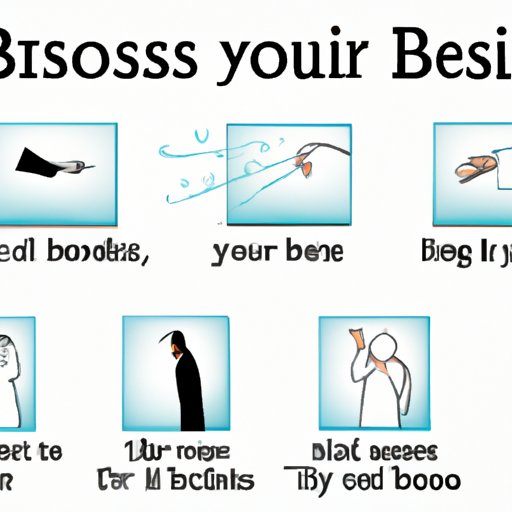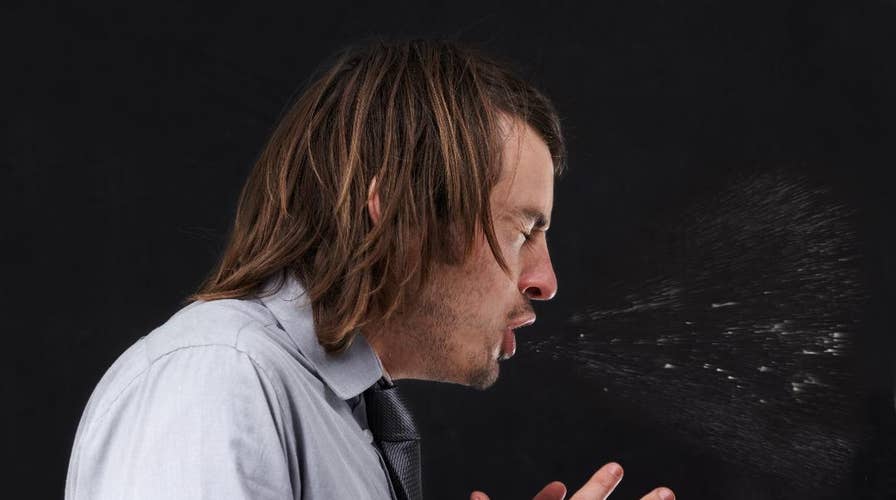Why Do We Say Bless You When You Sneeze? The Fascinating Story Behind This Common Gesture
Have you ever wondered why people say "bless you" when you sneeze? It's one of those quirky traditions that most of us take for granted. But the truth is, there's a rich history behind this simple phrase that dates back centuries. Let's dive into the fascinating origins of this polite little habit and uncover why it’s become such a staple in our daily lives.
You’ve probably heard someone sneeze, and almost instantly, someone nearby says, "bless you." It’s automatic, right? But have you ever stopped to think about why we do it? Is there some deeper meaning behind this gesture, or is it just a polite reflex? Trust me, the story behind "bless you" is way more interesting than you might think.
This tradition has roots that go way back, and it’s tied to everything from ancient superstitions to religious practices. Whether you’re a history buff or just curious about why we do the things we do, this article will give you a fresh perspective on a phrase you’ve probably said hundreds of times without even thinking about it.
Table of Contents
- The Origin of Saying "Bless You"
- Superstitions Surrounding Sneezing
- Religious Aspects of "Bless You"
- Historical Events That Shaped the Tradition
- How We Use "Bless You" Today
- Cultural Variations of the Phrase
- The Science Behind Sneezing
- Sneezing Etiquette Around the World
- Fun Facts About Sneezing
- Why "Bless You" Still Matters
The Origin of Saying "Bless You"
So, where did this whole "bless you" thing even come from? Well, it all starts with a bit of ancient history. Back in the day—like, way back in the day—people believed that sneezing was a sign that something big was about to happen. Like, really big. Some cultures thought it was a sign of good fortune, while others saw it as a warning that danger was lurking around the corner.
One of the earliest recorded instances of saying "bless you" dates back to the Roman Empire. When someone sneezed, people would say "Jupiter preserve you" or "Salve," which roughly translates to "good health." The idea was that sneezing might open up the body to evil spirits, so a quick blessing was needed to keep those pesky spirits at bay.
But the tradition really took off during the Middle Ages, thanks to—you guessed it—a global pandemic. Yep, the bubonic plague played a big role in turning "bless you" into a common phrase. More on that later, though. For now, just know that this little tradition has been around for a long, long time.
Why Did Ancient Cultures Care So Much About Sneezing?
Let’s break it down. In many ancient societies, sneezing was seen as a powerful act. Some thought it was a way for the soul to escape the body, while others believed it was a sign that the gods were trying to communicate with us. Either way, sneezing was treated with a lot of respect—and a little fear.
Here’s a quick rundown of some of the beliefs:
- Greeks: Sneezing was considered an omen. A good sneeze meant good news was coming, while a bad sneeze could signal trouble.
- Egyptians: They believed that sneezing released a part of the soul, so they would perform rituals to protect the sneezer.
- Native Americans: Some tribes thought sneezing was a sign that the Great Spirit was watching over them.
See? Sneezing wasn’t just a random bodily function back then. It was a big deal.
Superstitions Surrounding Sneezing
Now, let’s talk about superstitions. You know, those quirky little beliefs that people hold onto even though they don’t really make sense. Sneezing has been the subject of some pretty wild superstitions over the years. For example:
- Some people believe that sneezing is a sign that someone is talking about you behind your back. If you sneeze once, it’s good gossip. Twice? Bad gossip. Three times? Someone’s totally trash-talking you.
- Others think that sneezing during an important event, like a wedding or a job interview, is a bad omen. Like, "Whoa, maybe I shouldn’t do this right now."
- And then there’s the whole "soul escape" thing. Some cultures believed that sneezing could literally send your soul flying out of your body, leaving you vulnerable to evil spirits.
Of course, most of these superstitions have faded over time, but they’re still fun to think about. Plus, they help explain why we say "bless you" in the first place. It’s all about protection, whether it’s from evil spirits or just plain bad luck.
Why Do Superstitions Stick Around?
Superstitions are like those old family recipes that get passed down from generation to generation. Even if they don’t make logical sense, they stick around because they’re comforting. Saying "bless you" after someone sneezes is a way of showing that you care, even if it’s just a reflex. It’s like giving someone a little hug without actually hugging them.
Religious Aspects of "Bless You"
Let’s talk about religion for a second. A lot of the traditions surrounding sneezing have religious roots. In Christianity, for example, saying "bless you" is a way of asking God to protect the sneezer. It’s like a mini-prayer that’s become part of everyday life.
But it’s not just Christianity. Other religions have their own versions of this tradition. In Islam, for example, sneezing is seen as a gift from Allah, and people are encouraged to thank God after sneezing. In Judaism, there’s a custom of saying "asuta" after someone sneezes, which is a way of wishing them good health.
What’s interesting is how these religious traditions have blended into secular society. Even if you’re not religious, you probably still say "bless you" without thinking twice. It’s one of those phrases that’s become so ingrained in our culture that it’s hard to imagine life without it.
How Religion Shapes Everyday Language
Religion has a way of influencing the language we use every day. Think about phrases like "God bless" or "thank heaven." They might not have the same religious significance they once did, but they’re still part of our vocabulary. The same goes for "bless you." It’s a reminder of how deeply religion has shaped the way we communicate with each other.
Historical Events That Shaped the Tradition
Now, let’s talk about the bubonic plague. Yes, the same plague that wiped out millions of people in the 14th century. During that time, sneezing was one of the first symptoms of the disease. So, when someone sneezed, people would say "bless you" as a way of praying for their recovery—or, let’s be honest, their survival.
But it wasn’t just the plague. Other historical events, like the Black Death and the Spanish flu, also played a role in shaping this tradition. In fact, some historians believe that saying "bless you" became more widespread during these outbreaks because people were looking for ways to cope with the fear and uncertainty of the times.
It’s a reminder that even the smallest traditions can have big historical significance. Who knew that a simple phrase like "bless you" could be tied to some of the most devastating events in human history?
How Pandemics Change Our Language
Pandemics have a way of changing the way we talk to each other. Think about all the new words and phrases that have entered our vocabulary in the last few years, like "social distancing" or "flatten the curve." The same thing happened during past pandemics, and "bless you" is just one example of how language evolves in response to crisis.
How We Use "Bless You" Today
Fast-forward to today, and "bless you" is still going strong. It’s become such a common phrase that most people don’t even think about it. But that doesn’t mean it’s lost its meaning. Saying "bless you" is still a way of showing kindness and concern for others, even if it’s just a reflex.
Of course, there are some people who don’t say "bless you" at all. Some think it’s unnecessary, while others prefer to use different phrases, like "gesundheit" or "take care." But no matter what you say, the sentiment behind it is the same: you’re acknowledging that someone’s sneezed and offering them a little bit of goodwill.
Is "Bless You" Still Relevant?
Absolutely. In a world where we’re constantly connected but often feel disconnected, small gestures like saying "bless you" can go a long way. It’s a way of showing that you care, even if it’s just for a moment. And in a world that sometimes feels a little cold, those moments of connection matter more than ever.
Cultural Variations of the Phrase
Not everyone says "bless you," though. Different cultures have their own versions of this tradition. In Germany, for example, people say "gesundheit," which means "good health." In French-speaking countries, they say "à tes souhaits," which translates to "to your wishes." And in some parts of the world, people don’t say anything at all.
What’s fascinating is how these variations reflect the values and beliefs of different cultures. Some cultures place a strong emphasis on health and well-being, while others focus on good luck or prosperity. It’s a reminder that even the smallest traditions can tell us a lot about the people who practice them.
Why Do Different Cultures Have Different Traditions?
Every culture has its own way of doing things, and that’s what makes the world so interesting. Whether it’s saying "bless you" or performing a specific ritual after sneezing, these traditions are a reflection of each culture’s history, beliefs, and values. And while they might seem different on the surface, they all share a common goal: to bring people together and show that we care about each other.
The Science Behind Sneezing
Of course, we can’t talk about sneezing without talking about the science behind it. Sneezing is a reflex action that helps clear irritants from your nasal passages. It’s your body’s way of saying, "Hey, there’s something in here that doesn’t belong!"
But did you know that sneezing is actually pretty powerful? A single sneeze can travel up to 100 miles per hour and release thousands of tiny droplets into the air. That’s why it’s so important to cover your mouth when you sneeze—especially during cold and flu season.
And here’s a fun fact: some people sneeze when they look at bright lights. It’s called photic sneeze reflex, and it’s actually pretty common. So if you’ve ever sneezed while walking out into the sunlight, now you know why.
What Does Science Tell Us About Saying "Bless You"?
From a scientific perspective, saying "bless you" doesn’t have any real effect on sneezing. But from a social perspective, it’s incredibly important. It’s a way of acknowledging that someone’s sneezed and offering them a little bit of support. And in a world where we’re constantly bombarded with information, those small moments of connection can make a big difference.
Sneezing Etiquette Around the World
Etiquette is another interesting aspect of sneezing. In some cultures, sneezing in public is considered rude, while in others, it’s perfectly acceptable. In Japan, for example, people are encouraged to cover their mouths when they sneeze and apologize for any inconvenience caused. In contrast, in some parts of Africa, sneezing is seen as a sign of good luck, and people will often congratulate the sneezer.
It’s a reminder that what’s considered polite

Why Do People Say “Bless You” When You Sneeze? Origins, Beliefs, and

Why Do People Say “Bless You” When You Sneeze? Origins, Beliefs, and

Why do we say 'God bless you' when we sneeze? Fox News